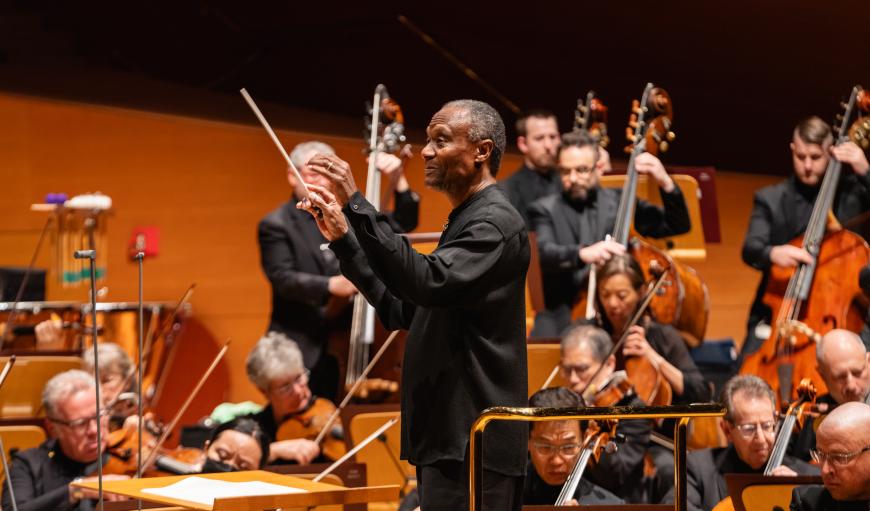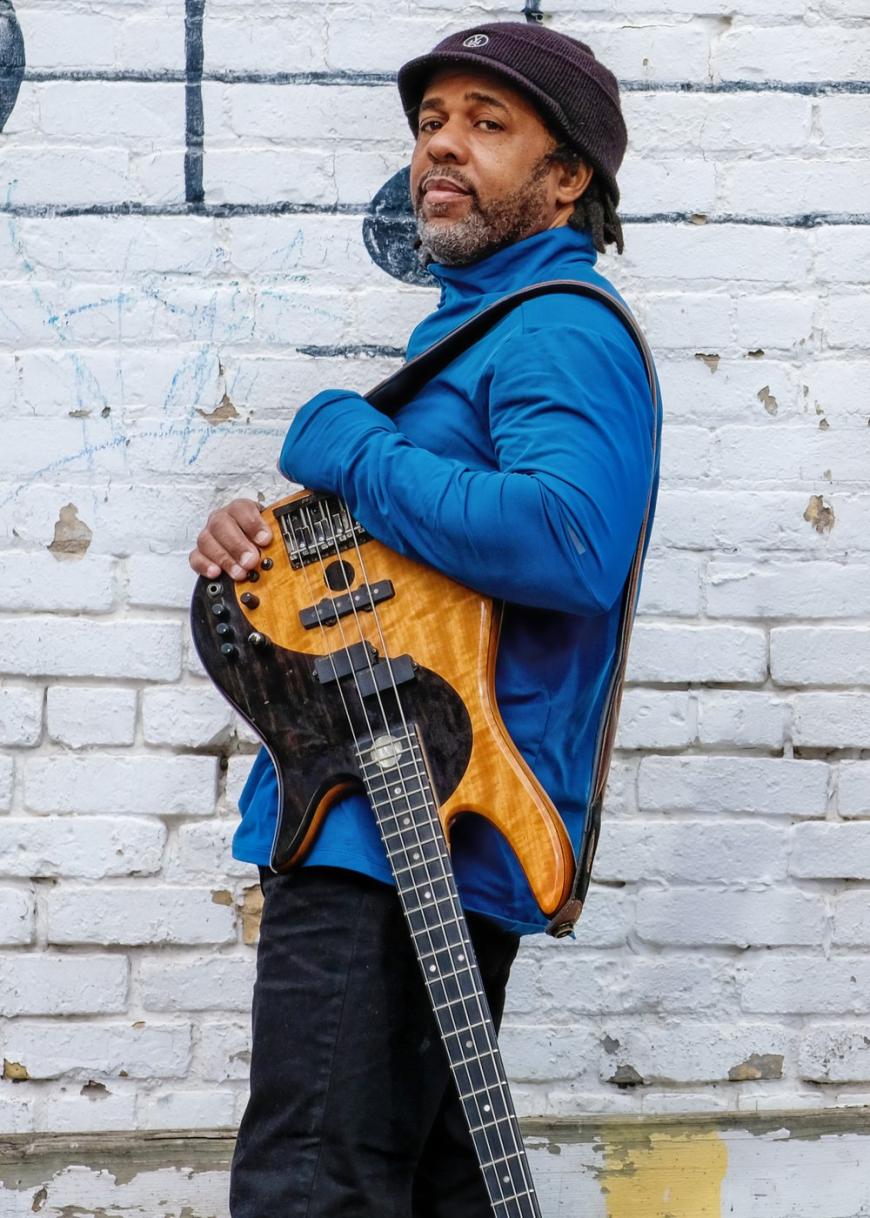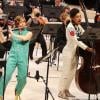
During the Gustavo Dudamel years at the Los Angeles Philharmonic, the once-sharp divisions in repertoire between the winter season downtown and the summer season at the Hollywood Bowl have blurred somewhat. Pieces that you once would have expected to be played at the Bowl have been turning up at Walt Disney Concert Hall and vice versa. Which is a good thing overall — this spreads the word about different kinds of music, hopefully crashing through programming stereotypes on the way.
A good example would be jazz-funk bassist Victor Wooten’s fascinating new concerto for electric bass and symphony orchestra, La Lección Tres, which received its local premiere not at the Bowl — where Wooten and longtime bandmate Béla Fleck played at many a Playboy Jazz Festival — but at Disney Hall over the weekend.
On the podium was Thomas Wilkins, who, while still presiding as the Hollywood Bowl Orchestra’s principal conductor, has been logging more and more performance time with the LA Phil at Disney Hall in recent years. Indeed, his programming instincts have blossomed here, particularly at the intersection of classical music and jazz. Wilkins led the live premiere of Wooten’s concerto with the Boston Symphony in October 2021 (he is also the BSO’s artistic advisor for education and community engagement), and so he brought the piece to Disney Hall.

La Lección Tres (The lesson three) is the third version of an earlier Wooten composition simply called “The Lesson.” It’s a three-movement concerto played more or less uninterruptedly in a roughly fast-slow-fast sequence — leaning on the classical side, with only occasional attempts at a groove. Wooten utilizes two electric basses: one a standard fretted four-string instrument and the other a custom-made creation with a large cutaway curve so that it can be comfortably played with a bow while the performer stands upright.
You would expect some razzle-dazzle virtuosity from the composer on his instrument, and you get that in spots, notably in the long, likely improvised cadenza (Interlude) just before the Finale, during which Wooten flashed some speedy funk licks. Yet the most striking thing about the piece is the unique sound that Wooten gets out of the orchestra — an often sparely orchestrated succession of oddball sonorities, with the electric bass sometimes tracking what the strings are doing or in one moment submerged underneath a march-like passage.
There is also a sudden, refreshing comic element that surfaces near the end of the Interlude, in which Wooten faced down the entire double bass section of the LA Phil, trading licks and barbs. Wilkins turned his printed score upside down in mock confusion, eventually “consulting” principal cellist Robert deMaine. A percussionist brandished a slide whistle and a “samba whistle” (which sounded like the police whistle used in West Side Story), and the coda conjured the proclamatory sound of bullfight music. The piece is a crowd-pleaser, likely one that would be a hit at the Bowl, though gratefully heard in a good indoor acoustical environment for starters.
Samuel Coleridge-Taylor’s Ballade in A Minor also received its first LA Phil performances at these concerts. The generic-sounding title conceals a passionate, vividly dramatic 11-minute symphonic movement, full of a young man’s romantic imagination (he wrote it at age 23). Although he was apparently nicknamed “the African Mahler” in his time, Coleridge-Taylor’s piece sounds nothing like Mahler; if anything, it prefigures Sergei Rachmaninoff (a near-exact contemporary). Alas, Wilkins and the Phil didn’t get as much out of the piece as they could have on Sunday afternoon, March 17; it sounded tame, lacking thrust and storm-tossed vigor.
Leonard Bernstein’s Symphonic Dances from West Side Story — which this orchestra has played many times, including under Bernstein himself on a much-reissued Deutsche Grammophon recording — fell victim to routine on Sunday. The Prologue had little snap and crackle. The surprisingly messy Mambo was more frantic than swinging. Only the lyrical parts (“Somewhere” and the ambiguous Finale) came off satisfyingly. Coupled with Maestro going zero for seven at the Oscars the previous Sunday, not a great week for Lenny buffs.




